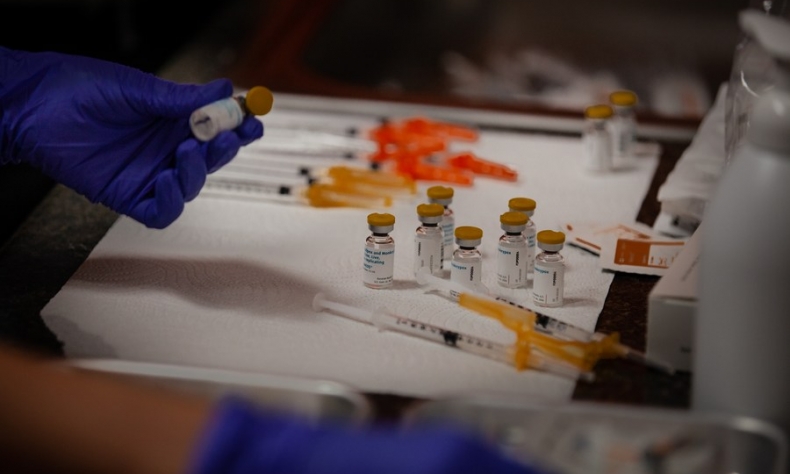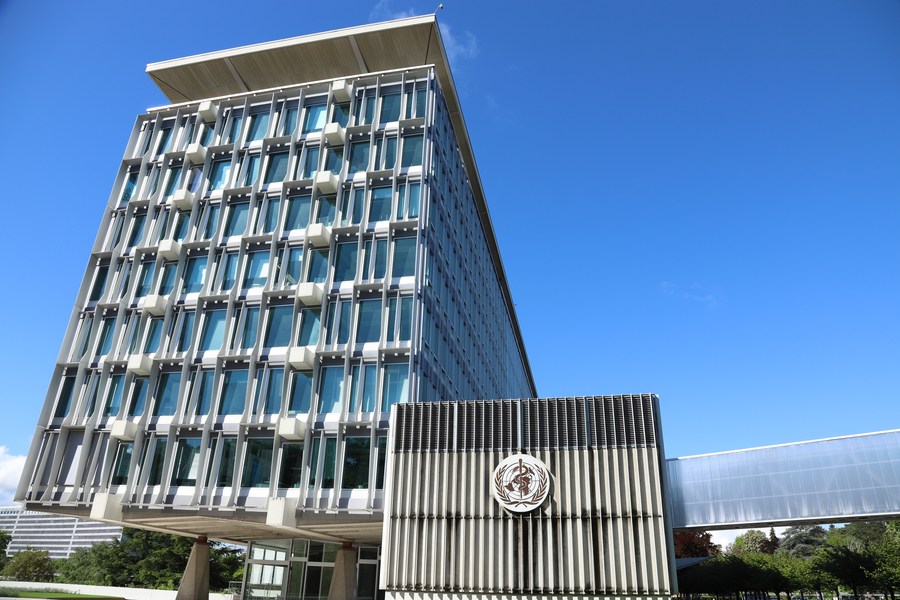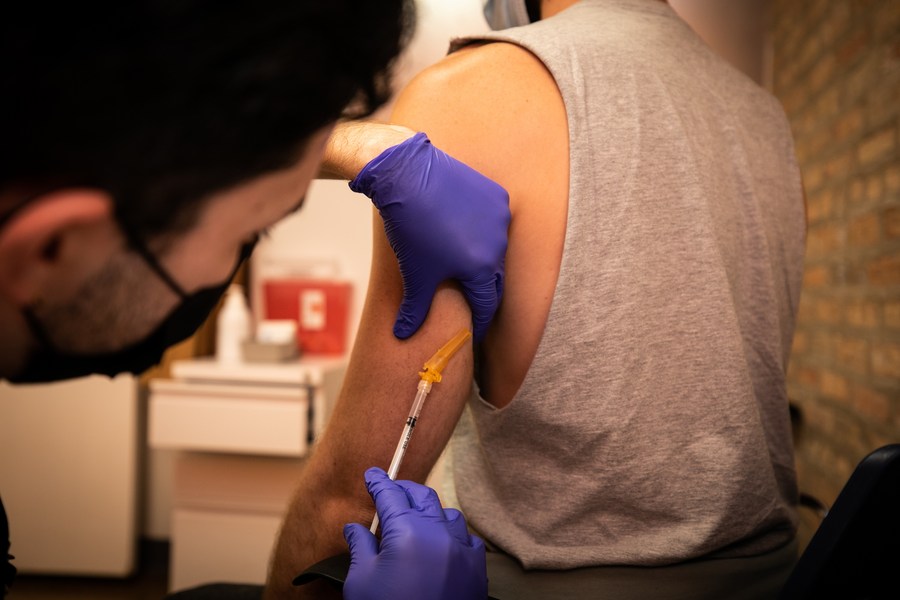Access to Monkeypox Vaccines in Africa: A Sense of Déjà Vu?

As COVID-19 recedes and the numbers of monkeypox cases potentially rise, the sense of déjà vu will become ever more pronounced. Without action now, the gap between people who have access to vaccines, and those who do not, will widen once more.
The current multi-country monkeypox outbreak, which started in Europe in early May 2022 and spread to more than 90 countries by August, has garnered worldwide attention and concern.
Monkeypox is endemic to Africa, and the widespread transmission to so many non-endemic countries in such a short time is unprecedented.
In response to this, on July 23, 2022, the World Health Organization (WHO) declared monkeypox a Public Health Emergency of International Concern (PHEIC). The declaration should allow for more resources to be made available to control the outbreak and require a more coordinated international response, including encouraging nations to share vaccines to protect people against the disease.
However, will we learn the lessons from the COVID-19 pandemic, another PHEIC, and address the vast inequities in global vaccine distribution that left much of the Global South waiting for COVID-19 vaccines? Or will there be a terrible sense of déjà vu with people in endemic African countries left at the back of the queue once more?
Monkeypox outbreaks endemic to West and Central Africa
While most people in the world had never heard of monkeypox up until a few months ago, Medecins Sans Frontieres (Doctors Without Borders) has experience treating people with this neglected disease in our projects, most recently in the Central African Republic in 2018. So, while it’s not a new disease for MSF medical teams, the current scramble to get vaccines for monkeypox is.
Monkeypox belongs to the family of viruses that includes the smallpox virus, with symptoms similar to smallpox but clinically less severe. The first human case of monkeypox was identified in the Democratic Republic of Congo in 1970, and human cases have been reported in 11 countries in West and Central Africa.
The ongoing monkeypox outbreak in Africa that predates the current pandemic has been lost in all the media hype. Monkeypox has been causing regular outbreaks in Central and West African communities for decades. Evidence suggests that case numbers have increased in recent years, but warning signs were largely overlooked.
The Democratic Republic of Congo has been most affected by monkeypox and is the only nation that has continually reported cases over the past five decades. There was a surge in the country in 2020, with 6,216 suspected cases and 222 deaths reported. Nigeria, the second-most affected country, has had an ongoing outbreak since September 2017, with a total of 558 suspected cases reported from 32 states in the country and eight deaths until April 30, 2022. Since May 2022, Nigeria has had four confirmed monkeypox deaths, the highest of any other country to date in this worldwide epidemic.

Vaccine protection against monkeypox
Fortunately, tools to prevent monkeypox exist. Vaccines designed for smallpox will likely provide a degree of cross-protection to monkeypox. Second-generation smallpox vaccines like ACAM2000 have significant side effects. Still, a newer third-generation smallpox vaccine, MVA-BN, has come along recently with a much better safety profile and thus is the preferred vaccine to use in this outbreak. It is licensed for use against monkeypox in the U.S. and the EU.
Currently, over 116 million vaccine doses are estimated to be scattered among various national stockpiles, mainly because of fears of a bioterrorism attack with smallpox. This includes about 100 million doses of the ACAM2000 vaccine and about 16.4 million doses of MVA-BN, most of which are held by the U.S.
Before this outbreak, wealthy nations had committed to share 31 million doses of vaccine if requested by the WHO as part of the Smallpox Vaccine Emergency Stockpile in a time of international need; the status of this agreement and what is happening with those doses are unclear. The WHO has said it is developing a vaccine-sharing mechanism, but details have been sparse, and as of the time of writing, no countries have yet shared any doses.
Despite the existence of these stockpiles, the recent issues with COVID-19 vaccine access in low- and middle-income countries (LMICs) provide some valuable lessons. In 2020, even before COVID-19 vaccines were developed, high-income countries (HICs) started placing large orders for the first candidate vaccines. When the vaccines were finally manufactured, most of the supply was already sold/pre-allocated to the HICs, who could pay top dollar upfront.
Meanwhile, the COVAX Facility, a mechanism set up to provide an equitable allocation of limited vaccines to all countries, including LMICs, was put at the back of the line. This resulted in HICs purchasing excessive amounts of COVID-19 vaccines, such that many were able to fully vaccinate and boost much of their populations before governments in LMICs could vaccinate even their high-risk populations. We are already seeing HICs putting in large orders for the MVA-BN vaccine.
We must not let this situation be repeated with monkeypox.

Price and supply barriers to new vaccines
What’s needed now is an affordable supply of vaccines to be made available to endemic African countries if and when they need them. While pricing information is hard to come by, according to some senior health officials, the MVA-BN monkeypox vaccine is priced at $100 a dose, which is unaffordable for people in LMICs and would make them (once again) dependent upon vaccine donations from HICs. However, lower prices are not guaranteed: Even though the U.S. government heavily funded the development of the vaccine to the tune of $2 billion, control over the cost and availability of this vaccine remains with the company, Bavarian Nordic, which holds a patent monopoly on the vaccine.
This dependence on a single manufacturer for the vaccine is already proving potentially disastrous. Bavarian Nordic has recently stated that they are uncertain they can meet the current demand and are now considering a technology transfer to a U.S. manufacturer.
But what is really needed to address equity is technology transfer to a company on the African continent so that African nations do not have to depend solely on donations from HICs. South Africa’s Aspen Pharmacare has offered to support the fill and finish of monkeypox vaccines. However, receiving a full technology transfer could further enable African self-sufficiency over the longer term. Additionally, endemic countries will also need programmatic support to administer the vaccines while not drawing resources away from already strained healthcare systems.
With the current manufacturing monopoly and dependence on vaccine dose donations, we cannot expect people in West and Central Africa to get equitable access to vaccines. As COVID-19 recedes and the numbers of monkeypox cases potentially rise, the sense of déjà vu will become ever more pronounced. Without action now, the gap between people who have access to vaccines, and those who do not, will widen once more.
Dr. Sharmila Shetty is vaccines medical advisor with MSF Access Campaign.
 Facebook
Facebook
 Twitter
Twitter
 Linkedin
Linkedin
 Google +
Google +










